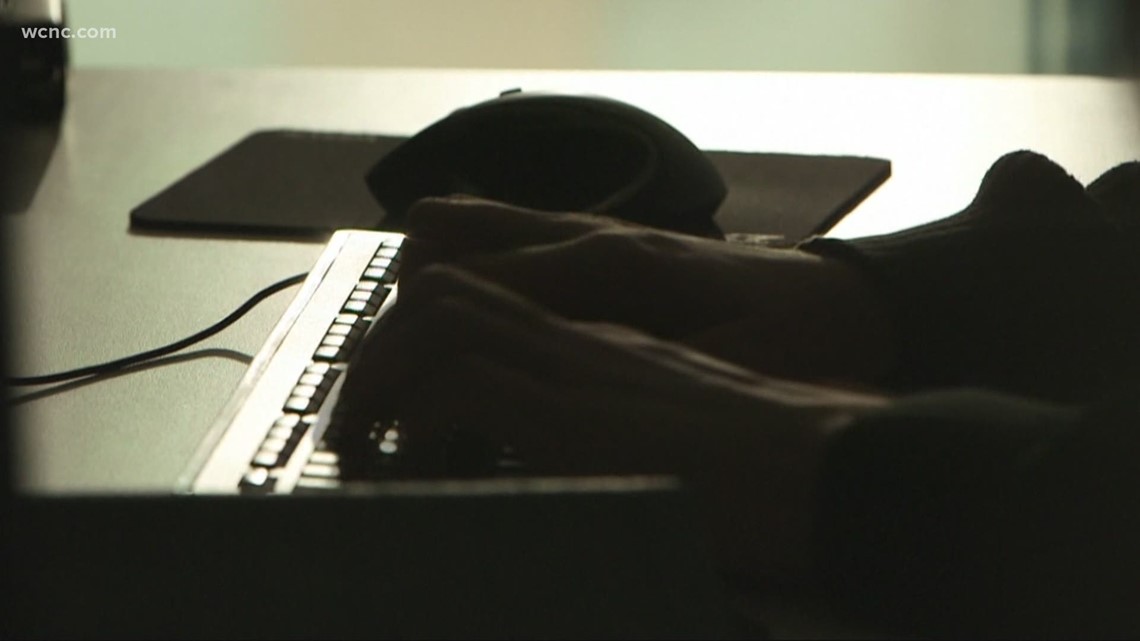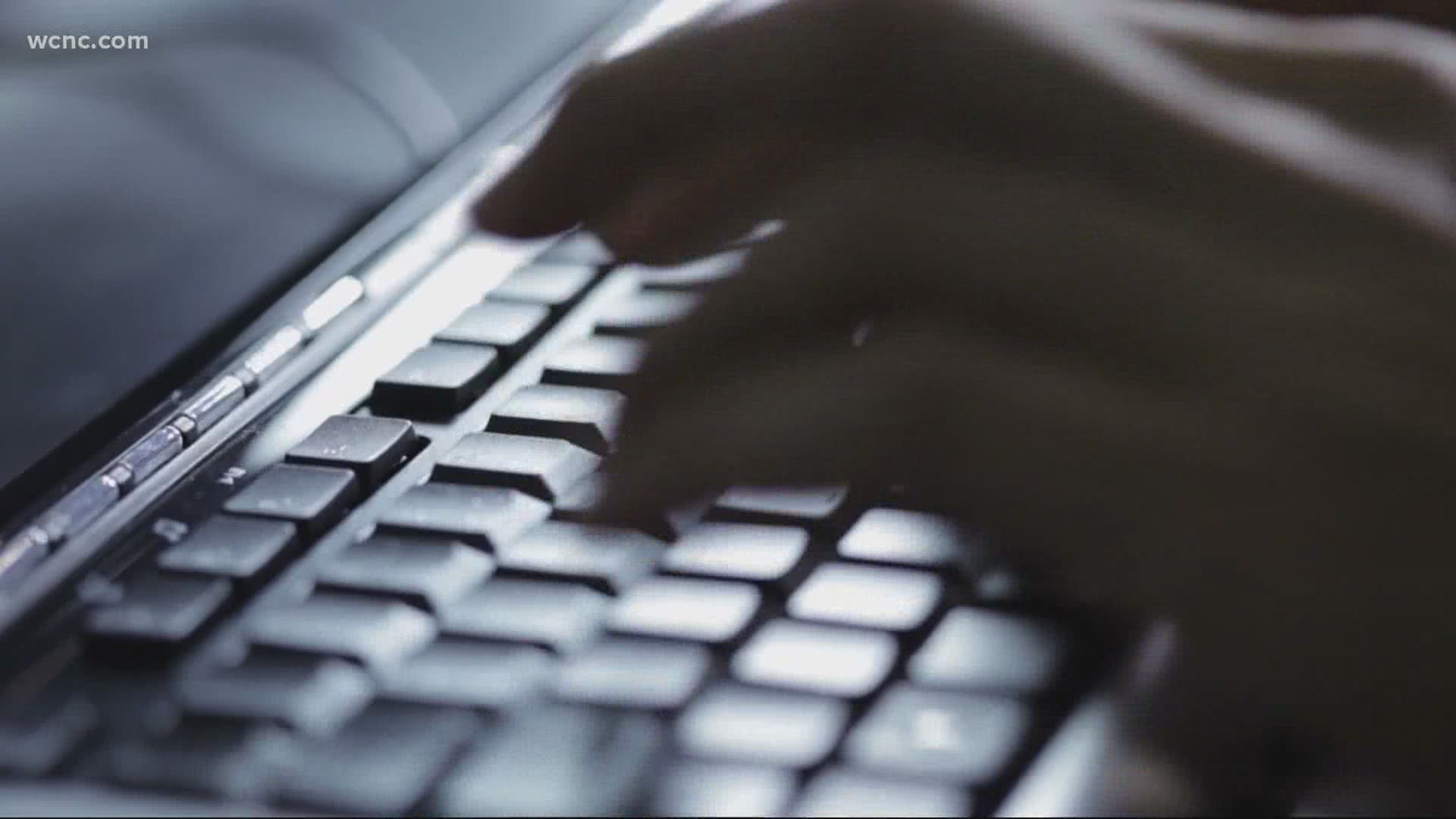CHARLOTTE, N.C. — There's a simple way to protect yourself and your money online. Do you know it?
If pipelines and billion-dollar businesses can be hacked and held for ransom, what chance do you have with your home computer or email? What can you do? Better yet, what should you do?
A 2019 Google study found that 52% of people use the same password on multiple sites. And 13% of people admitted to using the same password for everything.
It's estimated that over 2.5 billion accounts were hacked in 2018, according to the most recent data available. That amounts to roughly 6.85 million accounts getting hacked each day, or 158 every second.
As more consumers shop online to avoid going into stores, they are becoming easier targets for scammers. According to the FBI, sophisticated criminals are using social media ads and search engine results to trick consumers into visiting these fake shopping websites, where they will have their money and identities stolen.
The FBI is specifically warning about shopping sites that end with “.club” and “.top” instead of “.com.” The scams range from face masks and other COVID-19 items to fitness equipment and furniture.


So with all these hacks, big pipelines and big companies, how does the average Joe or Jane protect their home computer?
"That is a really good question. When you think about it, our entire lives are lived online," said Alex Hammerstone, a cybersecurity expert.
Hammerston is the head of risk management at TrustedSec, an ethical hacking company that advises major banks, retailers and Fortune 500 companies. They also train the U.S. military's cyber protection teams and previously advised the "Mr. Robot" TV show.
If you want to secure your online life, this self-identified hacker says it all comes down to one simple thing.
“And if you ask the average person, and if they’re honest about it, do you use the same passwords, the answer is yes and the problem is, if one of those weaker sites gets hacked, then the hacker can use software to try your same passwords on banking sites and others, and they'll get into them," Hammerstone said.
Experts said phrases are the toughest to crack, something unique that is special to you and easy to remember and has about 20 characters. Hammerstone advises changing it once a year and said it is OK to write them down, just secure that somewhere. And don’t use the same phrase for everything!
Using multi-factor authentication is good too, the kind that sends you a code to enter right when you are online. It’s plain old common sense that will protect you the best. Don’t click on strange links or even familiar links from old friends that suddenly show up out of the blue. Text messages from stores asking you to redeem something, don’t do that and every so often, update your passwords, using different ones on different sites.
Contact Bill McGinty at bmcginty@wcnc.com and follow him on Facebook.

